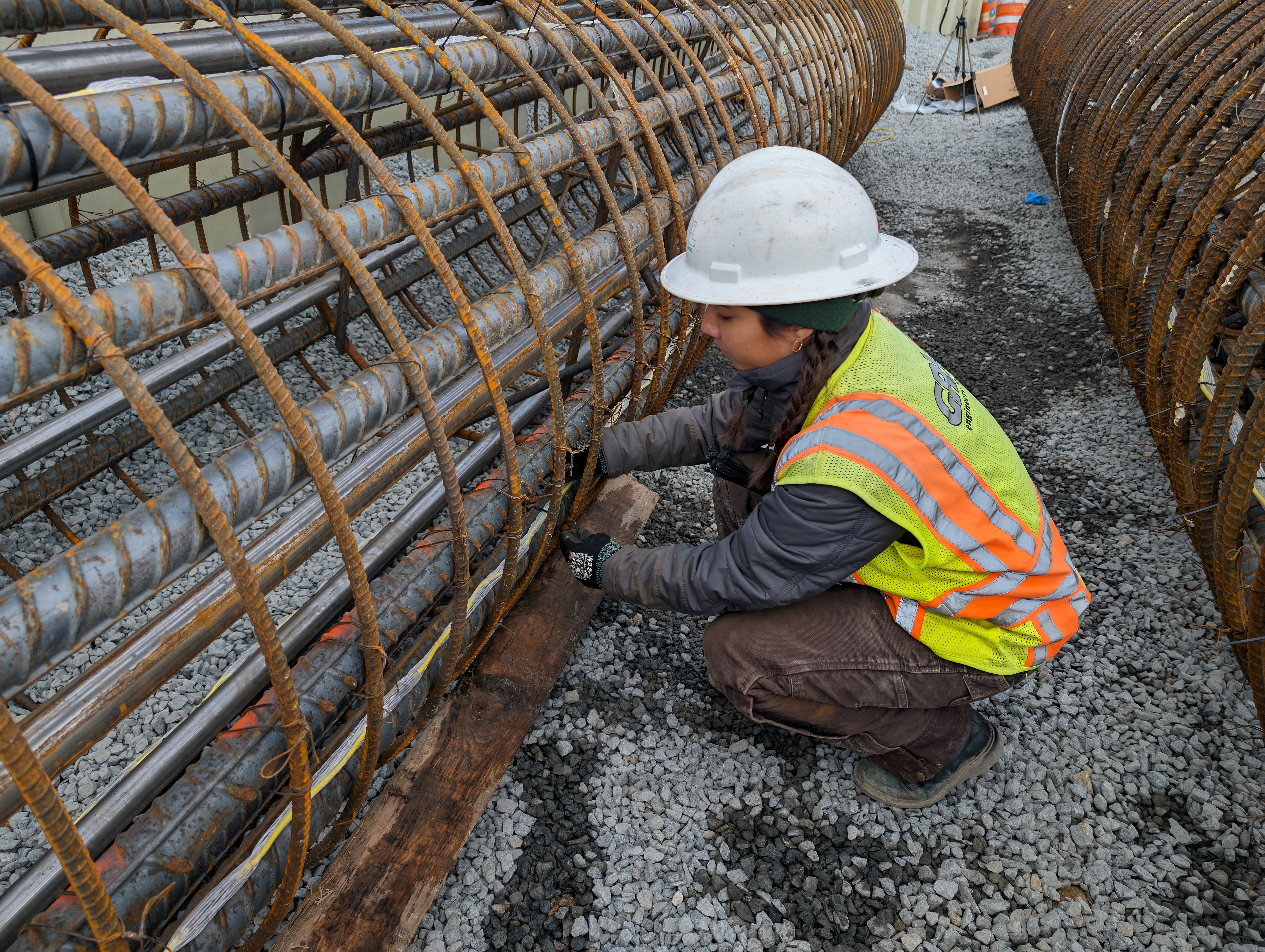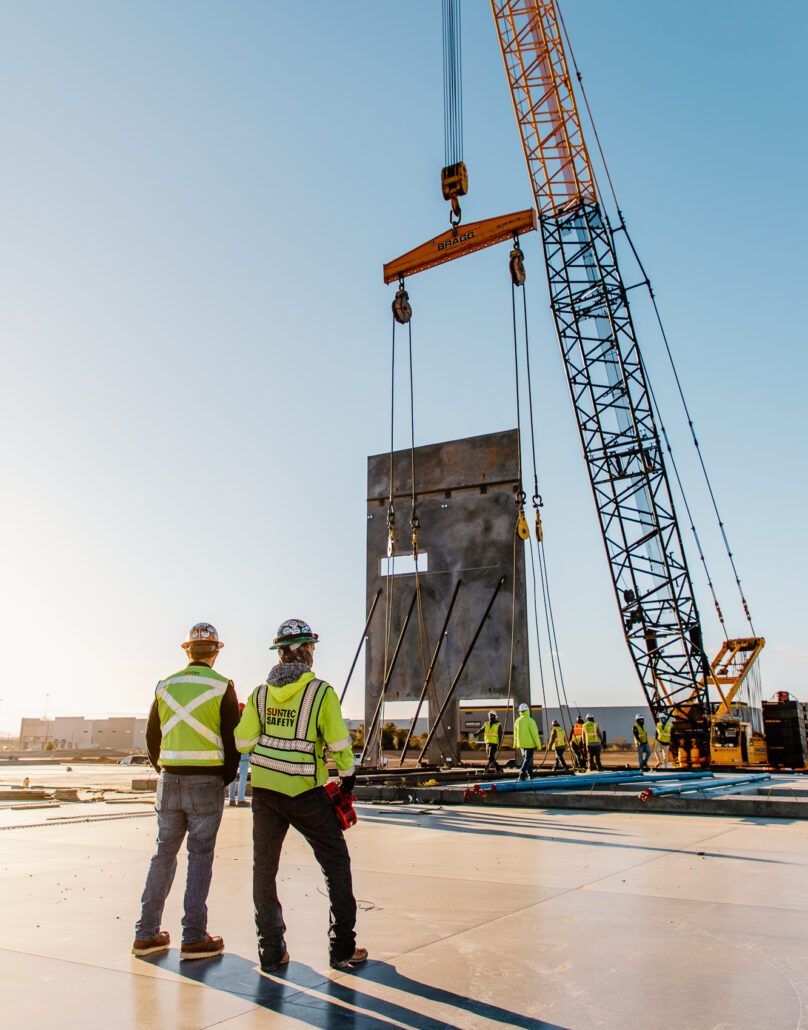Why West Coast General Engineering commercial concrete is the Smart Choice for High-Demand Construction Environments
Why West Coast General Engineering commercial concrete is the Smart Choice for High-Demand Construction Environments
Blog Article
The Essential Function of Concrete Structure in Structural Honesty and Durability
When it comes to constructing a home, the foundation is a lot more important than you may believe. Concrete structures offer unequaled strength and toughness, guaranteeing your framework can withstand different ecological obstacles. Without a solid base, you run the risk of possible issues like shifting or cracking, which can compromise security and value. Recognizing the subtleties of concrete structures could be the key to maintaining your investment for many years ahead. What should you take into consideration following?
Comprehending the Importance of Concrete Foundations
Concrete foundations are important to the overall stability of any kind of structure, as they give the necessary support required to withstand various tons and ecological conditions. When you think of constructing a home or a business space, the foundation is the initial thing you must consider. It acts as an obstacle against moisture, safeguarding your residential or commercial property from water damage. A well-placed concrete foundation likewise stops settling and changing, which can lead to cracks in walls and floorings. You'll desire to guarantee that the structure is appropriately made and reinforced, as this impacts the longevity of your structure. In addition, a strong foundation can boost power efficiency by reducing air leakages. Remember, disregarding the relevance of a concrete structure can lead to costly repair work down the line. Investing in a top quality foundation upfront is crucial for the stability and resilience of your structure.
Advantages of Concrete Structures for Structural Honesty
While many elements add to a building's structural integrity, concrete structures offer unparalleled sturdiness and stamina. You'll value that concrete can stand up to severe weather, resisting both wetness and temperature changes. This durability implies your framework is less likely to experience splitting or shifting over time, which can endanger its safety.Additionally, concrete's fundamental weight supplies a strong base, stopping motion throughout natural occasions like quakes or floods. When you select a concrete structure, you're additionally selecting low upkeep; unlike wood, it won't rot or bring in insects, conserving you money and time in repairs.Moreover, concrete's fire resistance provides included security, guaranteeing your framework can sustain high temperature levels without substantial damages. Generally, investing in a concrete foundation implies you're focusing on the long-term security and honesty of your building, making it a wise selection for any type of building job.
Common Sorts Of Concrete Foundations
When it pertains to constructing foundations, comprehending the common types of concrete foundations can help you make educated options for your task. One of the most widespread types include slab-on-grade, crawl space, and complete cellar foundations.A slab-on-grade foundation is an easy, cost-efficient choice, where a thick concrete slab is poured straight on the ground. This type works well in cozy climates, as it decreases heat loss.Crawl area foundations raise the home slightly over ground, allowing for air flow and accessibility to pipes and electrical systems. This style can help prevent wetness issues.Full cellar structures offer added living or storage space while providing superb structural assistance. They require more excavation and are typically used in cooler climates to stop frost heave.
Aspects to Think About When Designing a Concrete Foundation

Best Practices for Setting Up Concrete Foundations
When you're mounting a concrete structure, proper site prep work is essential to assure security (WCGE commercial concrete). You'll also require to understand reinforcement strategies to enhance strength and sturdiness. Do not overlook the healing procedure, as it plays an essential role in achieving a solid foundation.
Website Prep Work Relevance
It may appear simple, proper website preparation is crucial for assuring a strong and resilient concrete foundation. Beginning by getting rid of the area of any kind of debris, plants, or organic material that might jeopardize the foundation's honesty. Next off, assess the soil type and compaction; you might need to excavate or add products to develop a stable base. Level the ground to ensure also weight circulation and prevent resolving concerns later. Setting up proper drain systems is also important to prevent water build-up, which can weaken the structure gradually. Mark out the structure's dimensions accurately to guide the putting procedure. By complying with these steps, you'll set the phase for a successful concrete foundation that stands the examination of time.
Reinforcement Techniques Clarified
As soon as the site is correctly prepared, the next step in guaranteeing a strong concrete structure entails executing effective support strategies. You need to start by utilizing steel rebar, which offers tensile strength and helps prevent fracturing. Lay the rebar in a grid pattern, making certain it rises using spacers to keep appropriate insurance coverage. In addition, think about utilizing cable mesh for extra assistance, especially in locations based on hefty lots. Don't fail to remember to tie the rebar crossways safely with cable. For bigger structures, fiber reinforcement can boost longevity, lowering the threat of contraction cracks. Always follow regional building ordinance and guidelines to guarantee compliance. By applying these support techniques, you'll greatly increase your foundation's strength and durability, laying a solid foundation for your anonymous framework.
Treating Refine Essentials
To ensure your concrete foundation cures correctly, it is necessary to maintain ample wetness and temperature conditions instantly after putting. Begin by covering the surface area with a wet cloth or plastic sheeting to maintain moisture. This keeps the concrete hydrated, avoiding cracks and ensuring strength. You should likewise check the temperature; optimal curing conditions are in between 50 ° F and 90 ° F. If it's too warm, mist the surface area consistently to avoid quick evaporation. For winter, take into consideration making use of shielding blankets to keep warmth. Aim for a curing duration of at the very least seven days, as this is crucial for optimal strength development. By adhering to these finest methods, you'll boost your structure's durability and longevity, making certain structural stability for several years to come.
Maintenance of Concrete Structures for Longevity
To keep your concrete foundation solid and enduring, regular assessments are vital. You ought to additionally assure reliable drainage options are in area to stop water damage. If you find any kind of splits, addressing them promptly will conserve you from bigger problems down the line.

Regular Examinations and Evaluations
While normal inspections and evaluations might appear like a chore, they're vital for preserving the integrity of your concrete foundation. By routinely looking for splits, shifts, or indications of wear, you can catch possible problems before they rise right into expensive repair work. Search for any kind of water merging around the structure or unusual settling, as these can indicate underlying issues. It's additionally smart to keep an eye on any kind of modifications in your house's structure, like doors that stick or home windows that do not open efficiently. Maintaining a document of your inspections assists track modifications over time, enabling positive maintenance. Eventually, these evaluations guarantee your structure remains steady, sustaining the resource durability and security of your entire framework. Don't forget this vital facet of homeownership!
Efficient Drain Solutions
Regular inspections can reveal problems like drainage issues that could endanger your concrete foundation's security. To stop water buildup, guarantee your rain gutters and downspouts straight water away from the structure. Installing French drains can effectively redirect surface area and groundwater, lowering stress on your foundation wall surfaces. Furthermore, grading the dirt around your home assists assure that water moves away, as opposed to merging near your foundation.Consider making use of sump pumps in locations susceptible to flooding, as they proactively get rid of excess water. Frequently look for blockages in drainage systems and clear them immediately. You'll secure your foundation's stability and long life by taking these aggressive procedures. Keep in mind, efficient drainage remedies are crucial for keeping a solid, long lasting see this here concrete foundation.
Trigger Crack Repairs
When you discover splits in your concrete structure, resolving them without delay is essential for keeping its longevity. Little cracks can rapidly develop into larger concerns, jeopardizing the architectural honesty of your home. Regularly evaluate your foundation for indicators of damage, such as straight or upright splits. If you identify any, don't wait-- fix them instantly. You can make use of epoxy injections or concrete patching compounds, which are reliable for sealing fractures. Always follow the supplier's directions and consider consulting a professional for considerable damage. Bear in mind, timely fixings not only improve your structure's resilience however likewise conserve you cash in the future by stopping more comprehensive fixings down the line. Keep positive, and your foundation will certainly remain strong and safe.
Dealing With Typical Problems With Concrete Foundations
Concrete structures can deal with various issues gradually, making it crucial to identify and resolve them quickly. Among the most common issues is fracturing, which can occur as a result of temperature variations or working out soil. If you discover fractures, it's important to analyze their size and depth; little splits can commonly be secured, while bigger ones may need specialist evaluation.Water intrusion is an additional significant problem. Excess wetness can bring about mold and mildew growth and architectural damage. Warranty proper water drainage around your structure to alleviate this threat. In addition, search for indicators of moving or bowing walls, as this can suggest underlying concerns with your structure's stability.Regular inspections are fundamental to catch these problems early. If you detect any concerning indicators, don't think twice to speak with a foundation specialist. By remaining aggressive, you can preserve the integrity and longevity of your concrete foundation, assuring your home continues to be secure and secure.
Often Asked Questions
How Does Soil Type Affect Concrete Structure Performance?
Soil type greatly affects concrete foundation performance. If you have actually got large clay, as an example, it can cause moving and breaking. Sandy soil could lead to clearing up. Recognizing your dirt helps assure a steady structure.
Can Concrete Foundations Be Fixed if Harmed?
Yes, you can repair damaged concrete foundations. Relying on the degree of the damage, strategies like epoxy shot or slab jacking can recover security. It's ideal to speak with an expert for efficient options.
What Is the Common Life-span of a Concrete Foundation?
A concrete foundation typically lasts 30 to 100 years, depending on aspects like soil problems, climate, and maintenance. You'll intend to watch on it to guarantee it continues to be healthy throughout its life-span.
Exist Alternative Materials to Concrete for Foundations?
Yes, there are options to concrete for foundations, like steel, hardwood, or even recycled products. Each alternative has one-of-a-kind advantages and downsides, so you ought to consider your task's specific demands when picking the ideal product.
Just How Does Climate Effect Concrete Foundation Longevity?
Environment greatly impacts concrete structure toughness (West Coast General Engineering concrete foundation). Extreme temperature levels, dampness, and freeze-thaw cycles can compromise the material, causing fractures and architectural concerns. You should take into consideration regional climate conditions when preparing your structure to ensure lasting efficiency
Report this page